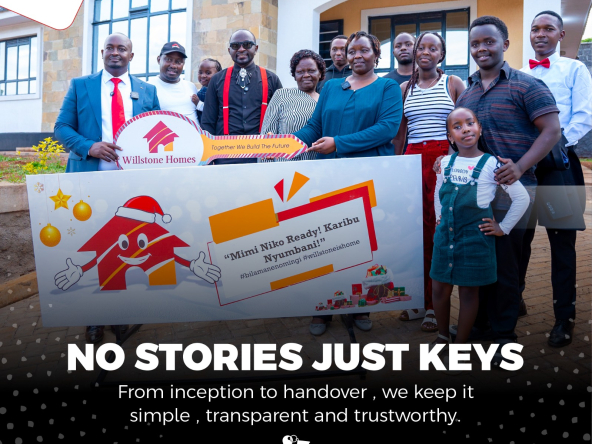Real estate investment in Kenya remains one of the most dependable avenues for wealth creation and financial stability. However, with rising land prices, high capital requirements, and regulatory complexities—especially in urban hubs like Nairobi—many investors are turning to joint ventures and partnerships to unlock larger investment opportunities. These collaborative arrangements allow multiple parties to pool capital, expertise, and networks to take on projects that would otherwise be out of individual reach.
What Are Joint Ventures and Partnerships in Real Estate?
A joint venture (JV) is a strategic alliance between two or more parties to undertake a real estate project—such as developing apartments, office blocks, or gated communities—by combining their resources. This setup typically ends once the project is completed and profits are shared based on pre-agreed terms.
A real estate partnership, on the other hand, is often an ongoing business relationship between investors. These arrangements may be structured as:
- General Partnerships
- Limited Partnerships
- Limited Liability Partnerships (LLPs)
Each has different risk exposures, tax implications, and legal responsibilities.
Why Are Joint Ventures Gaining Popularity in Kenya?
According to data from the Kenya Property Developers Association (KPDA) and Centre for Affordable Housing Finance in Africa (CAHF):
- Over 70% of new large-scale developments in Nairobi since 2021 have involved some form of joint venture.
- The average cost to develop a mid-tier apartment block in Nairobi exceeds Ksh 150 million, far beyond what many solo investors can manage.
This reality has fueled the rise of joint ventures in real estate Kenya, allowing investors to scale up and share both profits and risks.
Read Also: Why Homeownership in Nairobi, Kenya Is Declining While Rural Rates Hold Steady
Benefits of Joint Ventures and Partnerships
- Pooling of Capital and Resources
Enables larger-scale developments by combining financial strength. For example, a local landowner may partner with a financier to develop rental apartments on idle land in Nairobi. - Risk Sharing
Economic shocks, interest rate fluctuations, and construction delays are easier to manage when risks are spread among partners. - Access to Better Deals
Collaborations often lead to off-market opportunities and faster approvals, especially when one partner has strong government or legal connections. - Complementary Expertise
One party might have land, another construction expertise, and a third legal or financial know-how—combining to form a powerful investment team. - Enhanced Credibility with Lenders
Banks are more willing to fund projects backed by credible, experienced partnerships.
Common Types of Real Estate Joint Ventures in Kenya
1. Equity Partnerships
One partner provides the capital; the other manages the project. Profits are shared according to contribution or agreed terms.
2. Developer-Investor Partnerships
Popular in urban areas like Nairobi and Mombasa. The developer handles execution, while the investor provides funding.
3. Real Estate Syndication
A lead sponsor pools funds from multiple investors. Each investor earns a portion of the profits, similar to crowdfunding but in regulated structures.
4. Landowner Joint Ventures
The landowner contributes land, and a developer brings capital and expertise. This model is ideal for underutilized plots in prime zones such as Kilimani or Karen.
Challenges in Joint Ventures and Partnerships
While promising, joint ventures come with potential pitfalls:
- Goal Misalignment: Different expectations can lead to project failure.
- Unclear Profit Sharing: Disputes can arise if returns are not distributed transparently.
- Legal Complexity: Kenya’s land laws and partnership agreements can be intricate.
- Exit Clauses: Many partnerships fail to include exit strategies in case one party wants out.
- Tax and Regulatory Risks: Improper structuring can result in high tax liabilities or zoning penalties.
Tip: Always engage a lawyer and a certified financial expert before entering a real estate partnership.
Read Also:Understanding Home Insurance in Kenya
Building a Successful Real Estate Partnership
- Find Complementary Partners
Look for aligned goals and diverse but compatible skill sets. - Conduct Thorough Due Diligence
Verify each party’s track record, financial position, and legal standing. - Establish a Legally Binding Agreement
Include clauses on capital contribution, profit sharing, roles, dispute resolution, and exit plans. - Maintain Regular Communication
Frequent updates, financial transparency, and mutual accountability keep projects on track. - Plan for the Long-Term
Sustainable partnerships consider scalability, reinvestment, and even expansion into other regions or property types.
Real-Life Example: Nairobi Property Syndicates
In 2024, a group of eight investors pooled Ksh 100 million through a real estate syndicate to acquire land in Ruiru. Partnering with a local developer, they built 60 two-bedroom apartments. Within 14 months, 90% of the units had been sold, earning each partner a 30% return on investment.
This success underscores how property joint ventures in Kenya are becoming a viable model for scaling up in a competitive market.
Joint ventures and real estate partnerships in Kenya are no longer just a buzzword—they are a tested and growing model to navigate capital constraints, access bigger deals, and share investment risks. From Nairobi’s high-value commercial developments to affordable housing projects in satellite towns like Kitengela and Thika, collaborative investment is transforming the property landscape.
Whether you’re a first-time investor with capital or a seasoned developer with land or expertise, partnering in property development could be your next strategic move.
Read Also: The Future of Nairobi’s Informal Settlements





